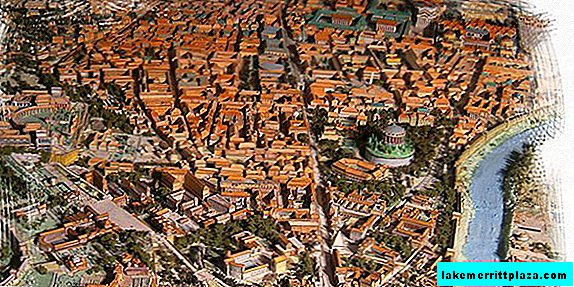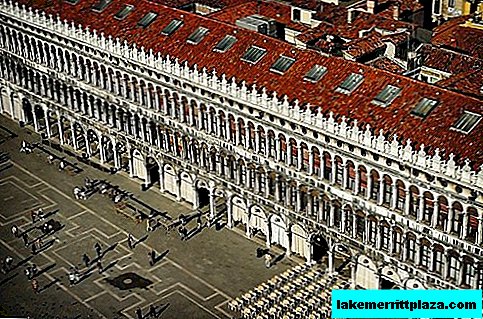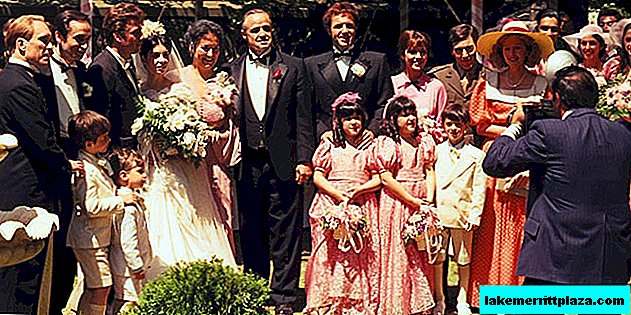BON GIORNO, CARI AMICHI!
We proceed to the fourth lesson, during which we will deepen our knowledge of the Italian language in every possible way!
Time
This time talk about time. Most common The words characterizing this category are: YESTERDAY, TODAY, TOMORROW and NOW.
- Ieri - YESTERDAY, Jeri reads
- Oggi - TODAY, read "Oji"
- DOMANI - TOMORROW, read "Domani"
- Addo - NOW, NOW, AT THIS MOMENT, read "Adesso"
Example:
- IERI HO LAVORATO, OGGI NON LAVORO - YESTERDAY I WORKED, AND TODAY I DO NOT WORK
Numerals
The NUMBER ONE happens to be male and female, all other numerals go in anonymous form.
- Uno - ONE ("Uno")
- UNA - ONE ("Una")
- DUE - TWO ("Duet")
- Tre - THREE ("Tre")
- QUATTRO - FOUR (Quattro)
- Cinque - FIVE (Cinque)
- Sei - SIX ("Sei")
- SETTE - SEVEN ("Sette")
- OTTO - EIGHT (Otto)
- NOVE - NINE ("Nove")
- DIECI - TEN (Diechi)
- UNDICI - ELEVEN ("Undichi")
- DODICI - TWELVE ("Dodichi")
With such a set of numerals, the traveler will be able to find out what time it is.
- CHE ORA Ѐ? - WHAT TIME IS IT NOW? ("Ke Ora E")
Noun Ora ends on BUT, which is a sign of the feminine, therefore, in the plural, it will look like: Ore-CLOCK. To answer the question "What time is it?" Italians use a pronoun Sono - THEY and the article LEpeculiar to the feminine plural.
Example:
- SONO LE DUE - NOW TWO HOURS ("Sono Le Douet")
- Ѐ LA UNA (L'UNA) - NOW ONE HOUR ("E Moon")
- LA - The singular feminine.
- ALLE DUE - TWO HOURS
- CHE COSA TU FAI OGGI ALLE 5? - WHAT DO YOU DO TODAY AT 5?
If you need to ask time more accurately, use the word MEZZO - HALF, read Mezzo.
Example:
- DOMANI ALLE 12 NOI IMPARIAMO L'ITALIANO - TOMORROW AT 12 WE WILL STUDY ITALIAN.
- IERI SERA ALLE NOVE IO HO MANFIATO CON MIO AMICO - YESTERDAY EVENING I ATTEND TOGETHER WITH MY FRIEND
- OGGI ALLE 9 IO VOGLIO PARLARE CON MIA MADRE - TODAY AT 9 I WILL TALK WITH MY MOM
- IERI SERA ALLE 7 IO HO ASCOLTATO LA MUSICA - YESTERDAY AT 7 EVENINGS I DID MUSIC
- STASERA IO VADO AL CINEMA ALLE 8 - EVENING I GO TO THE CINEMA IN 8 HOURS
- IERI ALLE 9 IO HO PASSEGGIATO CON MIO CANE - YESTERDAY AT 8 I WALKED WITH MY DOG
- IERI SERA ALLE 9 E MEZZO IO HO IMPARATO ITALLIANO CON MIA MADRE - EVENING AFTERNOON AT TEN TEN I LEARNED ITALIAN TOGETHER WITH MY MOM
- OGGI SERA ALLE 11 IO RIPETO NOSTRA LEZIONE - TODAY EVENING AT 11 I WILL REPEAT OUR LESSON
Possessive pronouns
MY
- Mio - MY ("Mio")
- MIA - MY ("Mia")
Example:
- MIA FAMIGLIA - MY FAMILY ("Mia Familia")
Family members
- PADRE - FATHER
- Madre - MOTHER
- FRATELLO - BROTHER ("Fratello")
- Sorella - SISTER ("Sorella")
- Marito - HUSBAND ("Marito")
- MOGLIE - WIFE ("Molylier")
- GENITORI - PARENTS ("Genitori")
- Nonno - GRANDFATHER
- Nonna - GRANDMOTHER
- Zio - UNCLE ("Jio")
- Zia - NTNZ ("Jia")
- MIA GENITORI - MY PARENTS
Example:
- MIO FRATELLO - MY BROTHER
- MIA SORELLA - MY SISTER
- DOVE ABITANO TOUI GENITORI? - WHERE DO YOUR PARENTS LIVE?
YOUR / YOUR
- TUO - YOUR ("Tuo")
- TUA - YOUR ("Tua")
Example:
- TUO PADRE - YOUR FATHER
- TUA MADRE - YOUR MOTHER
HIS HER
As for the pronouns HIS / HER, in the case of their use the gender is determined by the noun, i.e. it is necessary to raise the question "Who belongs to HIM / HER". For example:
- SUO PADRE - HIS / HER FATHER ("Suo Padre")
Who belongs to HIM / HER? Father is masculine, therefore - SUO.
- SUA MADRE - HIS / HER MOTHER ("Sua Madre")
Mother is feminine, therefore we use the pronoun SUA.
OUR / OUR
- Nosto - OUR (Nostro)
- NOSTRA - OUR (Nostra)
Example:
- NOSTRO PADRE - OUR FATHER
- NOSTRA MADRE - OUR MOTHER
YOUR / YOUR
- VOSTRO - YOUR ("Vostro")
- VOSTRA - YOUR (Vostra)
- Loro - THEIR ("Loro")
Plural pronouns
MY
- MIEI, MIE - MY ("Miei, Mie")
Example:
- MIEI FRTELLI - MY BROTHERS (masculine, plural)
- MIE SORELLE - MY SISTERS (feminine, plural)
The use of the masculine or feminine pronoun is determined by the gender of the nouns used.
YOURS
- TUOI, TUE - YOURS ("Tuoy, Tue")
Example:
- TUOI FRATELLI - YOUR BROTHERS
- TUE SORELLE - YOUR SISTERS
HIS HER
- SUOI, SUE - HIS, HER ("Suoy, Sue")
Example:
- SUOI FRATELLI - HIS / HER BROTHERS
- SUE SORELLE - HIS / HER SISTERS
OUR
- NOSTRI, NOSTRE - OURS ("Nostri, Nostre")
Example:
- NOSTRI FRATELLI - OUR BROTHERS
- NOSTRE SORELLE - OUR SISTERS
YOURS
- VOSTRI, VOSTRE - YOURS ("Vostri, Vostr")
Example:
- VOSTRI FRATELLI - YOUR BROTHERS
- VOSTRE SORELLE - YOUR SISTERS
THEIR
- Loro - THEIR
Example:
- LORO FRATELLI - THEIR BROTHERS
- LORO SORELLE - THEIR SISTERS
Adverbs
It is NECESSARY
- Bisogna - NADO ("Bison")
Examples:
- BISOGNA FARE - NEED TO DO
- BISOGNA PARLARE - NEED TO SPEAK
- BISOGNA MANGIARE - NECESSARY TO EAT
- BISOGNA LAVORARE - NEED TO WORK
- BISOGNA DORMIRE - NEED TO SLEEP
- IO PENSO CHE ADESSO BISOGNA MANGIARE - I THINK THAT YOU NEED TO EAT NOW
Recall the formation of the past tense in verbs of the correct form. If the present tense ends in -ARE (PARLARE), then the elapsed time is formed by adding the ending to the root -ATO (PARLATO). If the verb ends with -ERE (VENDERE), then in the past tense it will look like: root plus ending -UTO (VENDUTO). Verbs whose indefinite form ends in -IRE (DORMIRE) past tense end on -ITO (DORMITO).








